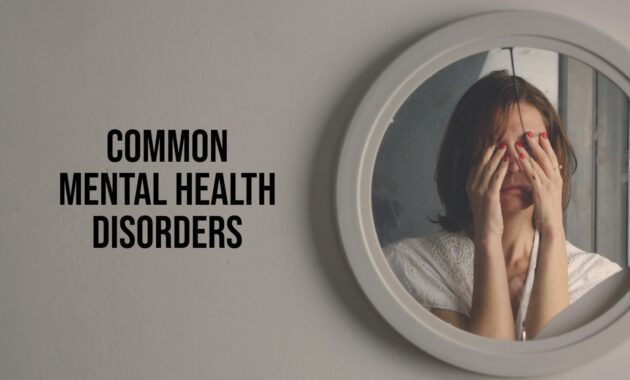Mental health disorders affect millions of people worldwide. A study by the Indian Council of Medical Research in 2017 revealed that mental disorders such as depression and anxiety disorders affected 45.7 million and 44.9 million people, respectively, in India. This means that one in seven Indians suffers from mental health issues. Despite the fact that it is so common, people with mental health concerns choose not to be open about their illness and do not pay enough attention to it. Doing so can only make your condition worse. The first step towards treating it is recognizing these mental disorders.
On World Mental Health Day, Health Shots spoke to Dr Kedar Tilwe, Consultant Psychiatrist, Fortis Hospital Mulund and Hiranandani Hospital, Vashi, Mumbai, to learn about some of the most common mental health disorders and their symptoms.
Common mental disorders
Here are 7 common mental disorders you should be aware of:
1. Depression
One of the most common mental disorders, depression, is characterised by pervasive sadness, decreased interest in previously pleasurable activities, sleep disturbances, ideas of helplessness, hopelessness, and worthlessness, along with self-harm thoughts or attempts. It can interfere with daily functioning, affecting sleep, appetite, and energy levels. While its intensity may vary from mild to moderate or severe, it is generally treated by a combination of supervised pharmacotherapy, cognitive behavioural therapy (CBT), medication, and lifestyle changes.
2. Anxiety disorder
“Anxiety disorders can range from severe disproportionate anxiety or fear, which can be precipitated in response to a situation (specific phobia), the anticipation of panic episodes (panic attack disorder, agoraphobia), or multiple small, non-specific worries (generalised anxiety disorder),” says Dr Tilwe. In a person with any form of anxiety disorder, ruling out underlying medical conditions such as hypertension and thyroid disorders, or diabetes is essential, as co-morbidities can occur. Therapy, medication, and relaxation techniques can also help manage anxiety.

3. Stress disorder
Stress disorders, such as post-traumatic stress disorder (PTSD), result from exposure to traumatic events. Flashbacks, nightmares, and severe anxiety are all possible symptoms. These disorders often develop as a result of trauma, such as combat experiences, accidents, or abuse. A combination of supervised pharmacotherapy, CBT, and appropriate lifestyle changes will help deal with these disorders.
Also read: Mental health disorders in kids: Know warning signs you must watch
Select Topics of your interest and let us customize your feed.
PERSONALISE NOW
4. Substance abuse
“While tobacco and alcohol abuse are the most common substance use disorders, dependence on cannabis, opioids, inhalants, benzodiazepines, and hallucinogens is also termed substance abuse. These are psychotropic drugs that can have a high level of addiction and have hazardous physical as well as psychological consequences,” adds Dr Tilwe. This is why proper supervised addiction treatment, depending on the drug, motivational interviewing, and group therapy will help addicts kick the habit.
5. Eating disorders
Eating disorders like anorexia nervosa, bulimia nervosa, and binge-eating disorder involve unhealthy relationships with food and body image. Individuals suffering from eating disorders may restrict their food intake, binge eat or engage in excessive exercise. Dr Tilwe avers, “These disorders are often linked to societal pressures and psychological factors. Treatment includes therapy, nutritional counseling, and medical supervision.”

6. Childhood-onset disorders
These disorders include attention deficit hyperactivity disorder (ADHD), learning disabilities, autism spectrum disorder, and intellectual disability, which can affect a child’s emotional, behavioural, and social development. All these disorders require medical intervention and timely diagnosis, as early diagnosis and treatment can significantly impact the prognosis.
Also read: 7 self-care tips to improve your mental health
7. Bipolar disorder
Bipolar disorder, formerly known as manic-depressive illness, is characterised by extreme mood swings between mania and depression. Individuals experiencing manic episodes may feel elated, have increased energy, and engage in risky activities. Depressive episodes are characterised by emotions of helplessness and exhaustion. Bipolar disorder can be caused by genetics, brain chemistry, and life events. Medication and therapy are common treatments to stabilise mood.

In today’s world, apart from these mental health disorders, it is also essential to be aware of addictions to mobile phones, gaming, selfies, and internet addictions/abuse. because they can also take a toll on your mental health!
#World #Mental #Health #Day #common #mental #disorders
